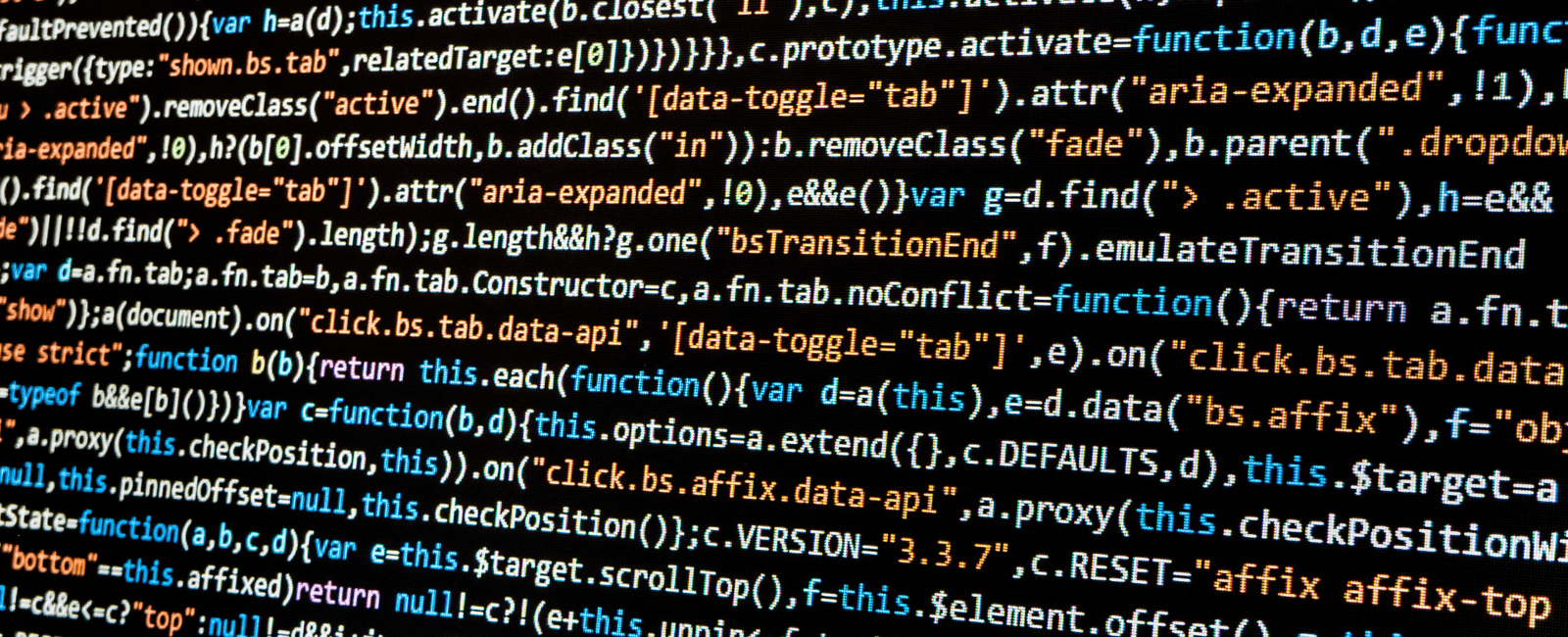
Unlocking the World of Code: The Best Programming Languages for Beginners

Table Of Contents
Are you ready to embark on a thrilling journey into the world of code? Whether you’re a tech enthusiast looking to kickstart a career in programming or simply curious about the inner workings of the digital realm, you’ve come to the right place. In this digital age, learning to code has become an essential skill, and there’s no better time to dive in than now. But with countless programming languages to choose from, where should a beginner start? Fear not! In this comprehensive guide, we will unlock the doors to the captivating world of code and explore the best programming languages for beginners. From the simplicity of Python to the versatility of JavaScript, we’ll delve into the characteristics, applications, and learning resources of each language, ensuring you have all the tools you need to embark on this exciting coding adventure. So, grab your keyboard, sharpen your logical thinking, and let’s get started on this mind-expanding journey into the realm of programming!
Why learning a programming language is important
Learning a programming language opens up a world of opportunities for people. In today’s technology-driven society, coding skills are in high demand across various industries. Whether you’re interested in web development, data analysis, artificial intelligence, or even game design, programming languages provide the necessary tools to bring your ideas to life. The ability to code not only enhances your problem-solving skills but also allows you to create innovative solutions and contribute to the ever-evolving digital landscape. Furthermore, learning a programming language equips you with a valuable and transferable skill set that can boost your career prospects and open doors to exciting job opportunities. By investing time and effort into learning a programming language, you are investing in your future success.
Factors to consider when choosing a programming language
With an abundance of programming languages to choose from, it can be overwhelming for beginners to select the right one to start their coding journey. However, certain factors can help narrow down the options and guide your decision-making process. One crucial factor to consider is the ease of learning. As a beginner, it’s important to choose a language that has a gentle learning curve and provides clear and concise syntax. Another factor to consider is the versatility of the language. Opting for a programming language with a wide range of applications allows you to explore different fields and adapt your skills to various projects. Additionally, the availability of learning resources and a supportive community can greatly facilitate your learning process. Taking these factors into account will ensure that you choose a programming language that aligns with your goals and provides a solid foundation for your coding journey.
Best programming languages for beginners - Python, JavaScript, and Ruby
When it comes to programming languages for beginners, three languages stand out for their simplicity, versatility, and extensive resources for learning: Python, JavaScript, and Ruby. These languages have gained popularity among beginners and industry professionals alike, making them excellent choices for anyone starting their coding adventure.
Overview of Python, its features, and why it’s a good choice for beginners
Python, known for its clean and readable syntax, is often recommended as the first programming language for beginners. Its simplicity makes it easy to learn and understand, even for those with no prior coding experience. Python’s focus on readability allows beginners to write code that is both concise and expressive, making it an excellent choice for learning the fundamentals of programming logic. Moreover, Python’s versatility is another reason why it’s a favorite among beginners. It can be used for web development, data analysis, machine learning, and more. With a vast collection of libraries and frameworks, Python provides a solid foundation for beginners to explore various domains of programming.
Overview of JavaScript, its features, and why it’s a good choice for beginners
JavaScript, often referred to as the language of the web, is a versatile programming language that powers the interactive elements of websites. Its ubiquity and extensive usage make it an essential language for beginners to learn. JavaScript’s ability to run on both the front-end and back-end of web development makes it a valuable skill for aspiring web developers. Additionally, JavaScript’s dynamic nature allows beginners to see immediate results as they experiment with code. With a rich ecosystem of libraries and frameworks, such as React and Node.js, JavaScript provides endless possibilities for beginners to create engaging web applications and gain hands-on experience in the industry.
Overview of Ruby, its features, and why it’s a good choice for beginners
Ruby, known for its elegant syntax and readability, is another beginner-friendly programming language. With its focus on simplicity and developer happiness, Ruby is often praised for its user-friendly nature. Beginners can easily grasp the language’s concepts and quickly start building applications. Ruby’s strong emphasis on convention over configuration promotes clean and maintainable code, making it an excellent choice for those who value code readability and elegance. Furthermore, the Ruby on Rails framework, built with Ruby, provides a powerful and efficient way to develop web applications. Ruby’s supportive and passionate community ensures that beginners have access to abundant learning resources and opportunities for growth.
Resources for learning Python
To kickstart your journey into Python, here are some valuable resources for beginners:
1. Codecademy: Codecademy offers an interactive and beginner-friendly Python course that covers the basics and guides you through hands-on exercises.
2. Python.org: The official Python website provides comprehensive documentation, tutorials, and guides for learners of all levels.
3. Automate the Boring Stuff with Python: This book by Al Sweigart is a widely recommended resource that teaches Python through practical examples and real-world projects.
4. Python Crash Course: Written by Eric Matthes, this book offers a hands-on approach to learning Python, with exercises and projects to reinforce your understanding.
5. YouTube Tutorials: There are numerous Python tutorial channels on YouTube, such as Corey Schafer and Sentdex, that provide step-by-step guidance for beginners. We have linked a playlist we have made here with some of our favourites!
Remember to practice regularly and apply your knowledge to real-life projects to reinforce your learning.
Resources for learning JavaScript
To dive into the world of JavaScript, here are some excellent resources for beginners:
1. FreeCodeCamp: FreeCodeCamp’s interactive curriculum includes a comprehensive JavaScript course that covers the basics and progresses to advanced concepts.
2. Mozilla Developer Network (MDN): MDN’s JavaScript documentation is a reliable resource for understanding JavaScript’s core concepts and exploring its various features.
3. Eloquent JavaScript: This book by Marijn Haverbeke is highly recommended for beginners, offering a thorough introduction to JavaScript and practical exercises to reinforce your understanding.
4. The Odin Project: The Odin Project provides a comprehensive curriculum for learning web development, including JavaScript, HTML, and CSS, through hands-on projects.
5. JavaScript30: Created by Wes Bos, JavaScript30 is a free course that teaches JavaScript through 30 small projects, allowing beginners to apply their knowledge in a practical way.
6. YouTube Tutorials: We put together a list of resources on our YouTube channel for you!
As with any programming language, practice is key to mastering JavaScript, so be sure to experiment and build projects to solidify your understanding.
Resources for learning Ruby
To embark on your Ruby journey, here are some valuable resources for beginners:
1. RubyMonk: RubyMonk offers interactive lessons that cover the basics of Ruby, including syntax, data structures, and object-oriented programming.
2. The Ruby Programming Language: Written by Yukihiro Matsumoto, the creator of Ruby, this book provides an in-depth guide to Ruby, covering its features, syntax, and best practices.
3. Learn Ruby the Hard Way: By following the exercises and drills in this book by Zed Shaw, beginners can gain a solid understanding of Ruby’s concepts and improve their coding skills.
4. Ruby on Rails Guides: If you’re interested in web development with Ruby, the official Ruby on Rails Guides provide comprehensive documentation and tutorials to get you started.
5. RubyTapas: RubyTapas is a subscription-based service that offers short screencasts demonstrating Ruby techniques and best practices, perfect for continuous learning and expanding your knowledge.
6. YouTube Tutorials: We have put together a list of resources for learning Ruby for you!
Remember to actively practice what you learn and participate in the Ruby community to enhance your understanding and grow as a Ruby developer.
Conclusion
Learning a programming language is an exciting and rewarding journey that opens up a world of possibilities. As a beginner, choosing the right programming language sets the foundation for your coding adventure. Python, JavaScript, and Ruby are excellent choices for beginners due to their simplicity, versatility, and extensive learning resources. Whether you decide to start with Python’s clean syntax, JavaScript’s web development capabilities, or Ruby’s elegance, remember to practice regularly, build projects, and tap into the supportive communities surrounding these languages. So, grab your keyboard, sharpen your logical thinking, and unlock the doors to the captivating world of code. Your coding adventure starts now!
Related Posts






